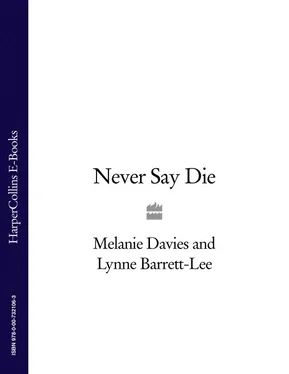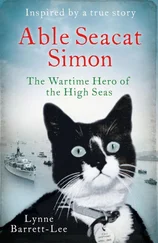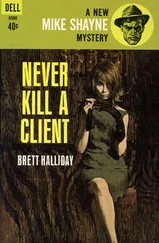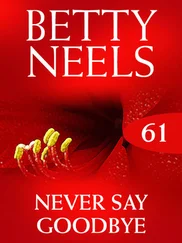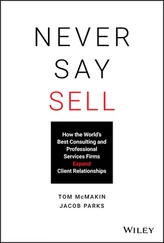Never Say Die
Melanie Davies and Lynne Barrett-Lee
The True Story of An Exceptional Life

Foreword
by Dame Tanni Grey-Thompson DBE
I first met Mel in the mid-1980s, when we were both competing in South Wales. Right from the start, it felt as though I had known her for years. She is one of the very few people I’ve ever met who can talk more than me! She is always positive, no matter what may be happening in her own life, and it really seems that nothing will stand in her way, mostly because Mel just won’t let it. She always shows an infectious optimism, confidence and gritty determination, even in the face of seemingly insurmountable adversity. It is that incredible stubbornness that is evident in everything she does and makes everyone around her think that they should be doing more.
For some, this book may be an uncomfortable read at times. Melanie certainly pulls no punches in describing in detail the everyday problems encountered by many wheelchair users. It is also an uplifting experience, a bit like meeting Melanie herself. It takes twenty years and a lot of heartache until she feels she has control of her life when she launches the TREAT Trust charity.
Time and again throughout the book you will find yourself wondering what else fate can throw at Melanie, and although she has had to deal with more than most, there are parts that made me laugh out loud as a fellow wheelchair user because I understand some of the experience. And what could be better than a fairytale ending to rival that of any Mills & Boon romance?
Dame Tanni Grey-Thompson DBE
November 2008
Cover Page
Title Page
Foreword
Part One
Chapter 1
Chapter 2
Chapter 3
Chapter 4
Chapter 5
Chapter 6
Chapter 7
Chapter 8
Chapter 9
Part Two
Chapter 10
Chapter 11
Chapter 12
Chapter 13
Chapter 14
Chapter 15
Chapter 16
Chapter 17
Chapter 18
Chapter 19
Chapter 20
Chapter 21
Chapter 22
Chapter 23
Chapter 24
Chapter 25
Chapter 26
Part Three
Chapter 27
Chapter 28
Chapter 29
Chapter 30
Copyright
About the Publisher
Part One
I don’t know how long it was before I fully woke up, but when I did everything felt different. My eyes opened and for a moment it seemed that I must have been hit on the head. There was no pain at all but a face loomed above me. A manly face. Rugged. Unfamiliar. Concerned. I wanted him to save me, but straight away I noticed that there was worry in his expression and sadness in his eyes. He asked me a question but I didn’t really hear it. I felt terrified. Why was he looking at me that way? Then he asked me again, and this time I did hear: ‘Can you move your feet for me, sweetheart?’ I had no choice but to answer with a question of my own, because I didn’t understand what was happening. Where were they? Where were my feet and my legs? Where was the rest of my body?
He was far too old to be my boyfriend. Not only that, he was too short as well. More seriously, though, he was also too wild. He’d been in trouble with the police, he was long-term unemployed and he was unquestionably Not Good Enough for me. In summary, he was all the things that inflame anxious parents when their naïve and impressionable fourteen-year-old daughters get involved with unsuitable nineteen-year-old boys. But I was fifteen by now, and I knew better.
I was also a very good actress, as my drama teacher had often commented upon. I was good in my role as a tough biker’s girlfriend, without any need for the sort of parental concern that might impede my swaggering exterior. Yes, I loved my mum and dad—cherished them more than anything else in the world, truth be known—but to show my devotion just wouldn’t have been cool.
And my parents knew just how to deal with me. They’d been through all the stages wise parents go through and opted for what seemed the most sensible option. Having voiced their opinions and found me less than receptive, they did what was probably the best thing to do: apart from ensuring we were chaperoned wherever possible, they kept their disapproval on a non-confrontational level and simply waited for me to do what they trusted I would. Grow out of it—out of him —if left to do so.
And they’d been right to feel confident. We’d been together almost a year. I was fifteen now, and through a combination of both time and circumstance I was beginning to do exactly that. Not for any of the reasons my parents had cited. Just because I was beginning to feel the first real stirrings of…well, of not needing him any more, I suppose.
Which, in hindsight, is often the way these things work. Older guy takes younger girl under his wing, gives her attention and confidence and a proper sense of self, and so, by whichever law governs such things, makes himself redundant in the process.
But for the moment, at least, we were still together. Still a couple, despite my knowing, even then, that this state of affairs wasn’t permanent. Something testified by a still livid scar across my biceps—the result of the removal of a DIY tattoo, which my parents had organised at hideous expense.
The tattoo had read ‘Aldo’. He’d be here in half an hour. I’d better hurry up and get ready.
Lots of things happened on 10 May 1980. It being a Saturday, various matches were won and lost. In London, Trevor Brooking led West Ham to a 1-0 defeat of Arsenal, and over in the States the Houston Astros beat the Atlanta Braves at baseball. Most notably, however, an irritable Mount St Helens was having a bit of a tantrum and limbering up for what, a week later, would end 130 long years of peace and quiet and become the worst volcanic disaster in the history of the United States.
None of these, however, would have been uppermost in my mind, even had I known they were happening. All I knew—all that mattered—was that today was Saturday, which meant no school, no hassle and a trip out on the back of Aldo’s bike, a 750cc Honda. A group of us—Aldo and I, plus his friend John and my best friend Juli—were off to Porthcawl for the day.
I checked the time, spent some minutes carefully applying make-up, then scrutinised myself in the mirror. My hair was freshly washed and my face newly painted. I looked, I decided, not too bad. Not something I’d much been accustomed to thinking; unlikely as it might seem for a girl of my height (just under six feet), I was altogether more used to feeling bad about myself, the legacy of years of relentless bullying, and the accompanying stress of a change of school and thus friends. But a great deal had changed in a very short time. Much as Aldo had been key to my growing self-confidence, it had been a fashion show at school that had really inspired me. I was tall. I was slim. I had loved my moment in the spotlight. And though I wasn’t so naïve as to think that the world was my catwalk, I had begun to feel at last that I had choices.
But that was for the future. Right now, I had nothing more pressing to think about than what to wear. I grabbed jeans, a stripy T-shirt and my suede stiletto boots. I yanked them on and skipped down the stairs.
Dad was in the living room, reading the paper. I joined Mum in the kitchen. She looked up. Then up and down. Then she sighed. ‘I do wish you weren’t going out on that bike today, Mel.’
‘I’ll be fine, Mum,’ I answered, as I habitually did. She sniffed.
Читать дальше
